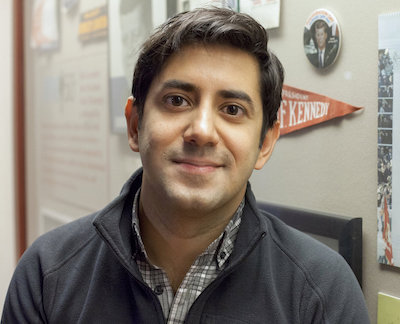
PHILADELPHIA, Pa. (TIP): Indian-American political organization IMPACT announced July 28 that public interest lawyer Neil Makhija will be its new Executive Director. The group also announced a $10 million commitment to support Indian American candidates nationwide, as well as plans to create a new program to identify, elevate, and support Indian American elected officials running for higher office.
The groundbreaking investment and prominent hire signals a new phase in the organization’s development at a time when Indian Americans – the second largest immigrant group in the U.S. – are beginning to flex their political muscle on the national stage: an Indian American woman is a top contender to be the Democratic nominee for Vice President; the number of Indian Americans in Congress has grown five-fold in just the past eight years; a record number of dollars are going to Indian American candidates; and just last week, the campaign arm charged with electing Democrats to Congress released its first-ever Hindi-language political ad.
All of these developments have come less than 75 years since South Asians began emigrating to the U.S., and 55 years after the Immigration and Nationality Act of 1965, which ended discriminatory quotas and opened the doors to Asian immigrants.
“I’m excited about the Indian-American community’s growing engagement in the political process — not just as an Indian American, but as someone who believes the more Americans of all ethnicities and backgrounds feel ownership in our democracy, the stronger our democracy will be,” said U.S. Senator Kamala Harris (D-CA), whose mother immigrated to the U.S. from India. “As IMPACT moves to its next phase of leadership, I look forward to being joined in the Capitol by even more Indian Americans to move our country forward for everyone.”
Indian Americans are one of the fastest-growing segments of the U.S. population — doubling in size over the last two decades — ensuring their footprint on the political landscape will only grow in the coming decades.
“This is a pivotal moment for our community and our country,” said Executive Director Neil Makhija. “After significant gains in previous election cycles, Indian Americans are poised to assert our emerging power by electing more Indian American candidates at every level of government, and by supporting excellent candidates of all backgrounds who share our ideals of inclusivity, equity, and civil rights. Over the next 100 days, IMPACT will be laser-focused on supporting these efforts to maximize the far-reaching potential of the Indian American community through powerful fundraising, targeted outreach, and grassroots mobilization.”
“We’ve seen Indian American engagement grow from a community on the margins of American politics to a burgeoning force,” said investor Deepak Raj and Raj Goyle, co-founders of IMPACT. “We’re thrilled to have Neil lead IMPACT into the next chapter of growth and scaling Indian American political power.”
“By organizing to win elected office, Indian-Americans are infusing politics with new experiences, ideas, and global connections,” said Nikil Saval, State Senator-elect in Philadelphia and the first Indian American elected to the Pennsylvania legislature. “Though our history in the United States dates to the early 20th century, and the first Indian-American elected to Congress served in the 1950s, the last decade has seen our ranks grow up and down the ballot. I’m thrilled to see IMPACT expand its efforts to improve Indian-American representation, as part of a broader fight to bring more people of color to bear on the American politics.”
The son of Indian immigrants who made Pennsylvania’s coal country home, Neil Makhija is a public interest attorney and educator. He teaches election law at the University of Pennsylvania Law School, has advised candidates and philanthropies in Pennsylvania and nationally, and was a Democratic candidate for the Pennsylvania legislature in 2016, outperforming the presidential ticket by 14 points in the district. As an attorney, Makhija has represented essential workers and communities impacted by the opioid epidemic.





Be the first to comment